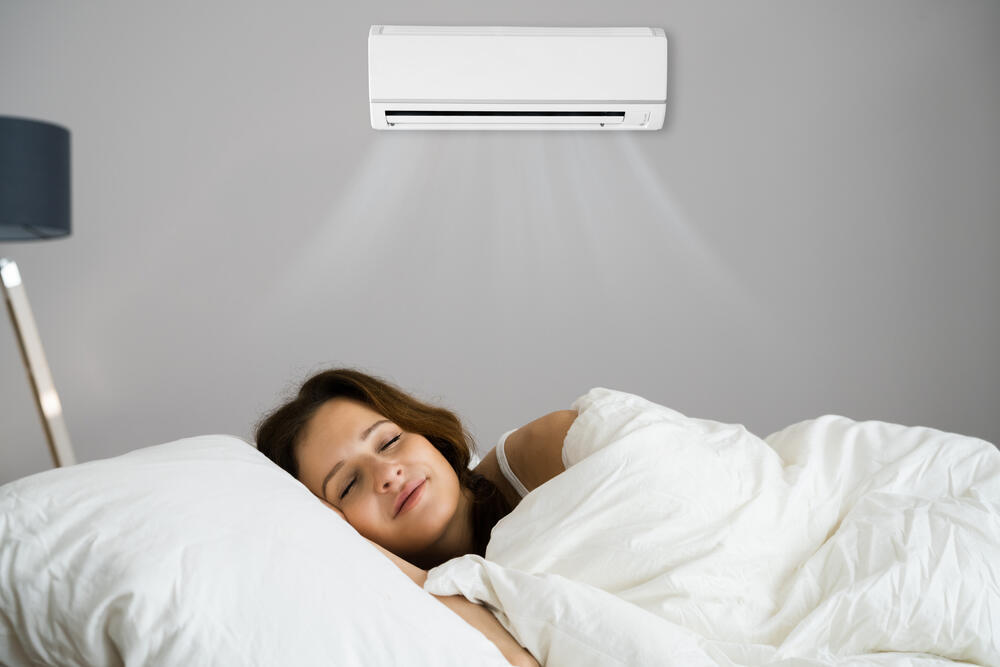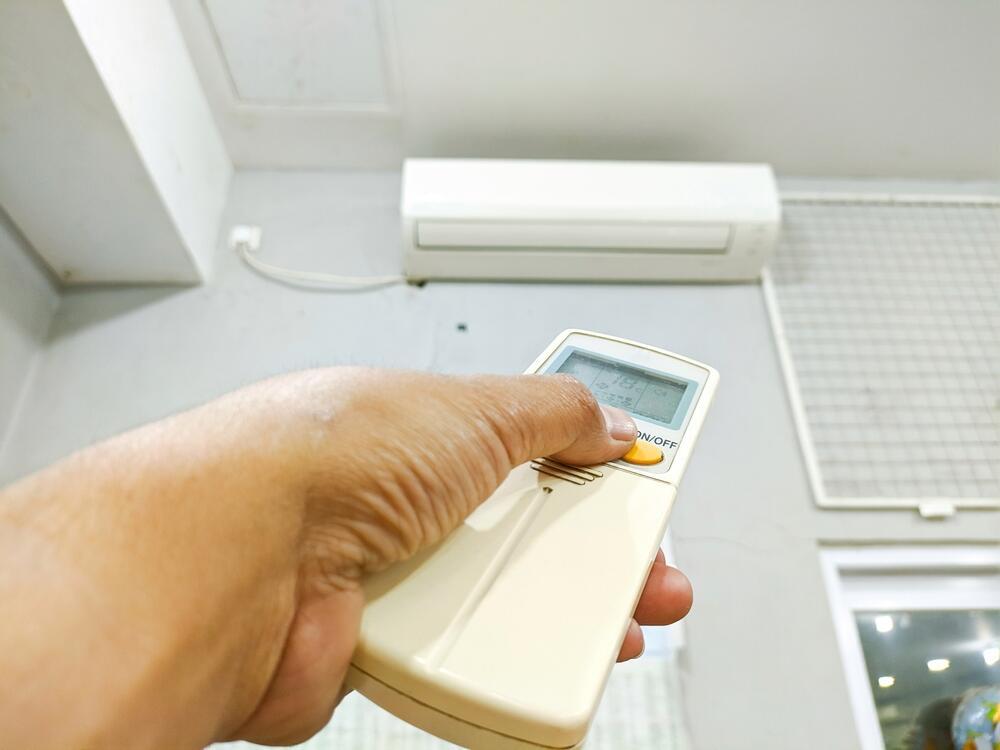Getting your Trinity Audio player ready...
The extreme heatwaves hitting Israel, alongside many other countries in the world, with temperature records being broken time and again, have led many of us to run the air conditioner almost around the clock.
Read more:
However, some avoid this due to fears of various illnesses, chills, influenza, back pain and infections. So what's better, sleeping with an air conditioner or a fan? And at what temperature should the air conditioner be set at night?
Dr. Uri Elkan, an otolaryngologist and sleep medicine expert at Rabin Medical Center, has a clear answer: "The right temperature for sleep is just over 20 degrees Celsius (68 degrees Fahrenheit)," he explains. "When examining the structure of proper sleep, research and sleep labs find that it is maintained with the fewest awakenings around 21 to 22 degrees Celsius (70 to 72 degrees Fahrenheit)."
Generally, sleeping in an air-conditioned room is not problematic. In fact, it's been proven that one of the essential conditions for good sleep, which includes deep sleep stages, is a proper and even cooler room temperature. A room that's too warm can interfere with deep sleep. The result is not only sweating, difficulties falling asleep, and sleep disturbances, but also shallow sleep that leads to daytime fatigue. Sleep disruptions not only affect concentration the next day, but also increase the risk of elevated blood pressure and deadly accidents.
Some people worry about the cold air distributed by the air conditioner, convinced that it leads to chills, fever or flu-like symptoms. However, the truth is that cold does not cause illness, and influenza or chills are caused by viruses, not low temperatures. To illustrate this, residents of the northern hemisphere do not get sick more than those who live in warmer regions.
Can sleeping in an air-conditioned room cause back pain?
There are no scientific studies indicating that cold increases the risk of muscle or skeletal injury. However, it is known that warming tissues increases blood flow and may alleviate muscle pain.
Why does the myth exist that an air conditioner can cause flu-like symptoms?
This myth probably first surfaced in 1976 when attendees of an "American Legion" conference contracted an infectious disease at a hotel in Philadelphia. The illness was dubbed "Legionnaires' disease." The outbreak was caused by Legionella pneumophila, a bacterium that grows in warm water and in cooling and air conditioning systems.
The bacterium causes flu-like symptoms, including high fever, cough, headache, muscle pain, fatigue, loss of appetite, diarrhea, vomiting and even confusion and memory loss. In the United States alone, there are thousands of infection cases each year, with antibiotic treatment being effective in eliminating it.
However, infection by this bacterium is extremely rare, and the truth is that your home air conditioner, even if it is a central unit, should not cause you to contract the disease, as long as you clean the filters according to the manufacturer's recommendations and as long as the air conditioner operates correctly.
What about air conditioning in children's rooms?
Air conditioners operating properly do not cause illnesses - and neither does the cool air they emit. It's permissible and even advisable to run an air conditioner in baby and children's rooms if the room temperature exceeds the recommended range of 68-70 degrees Fahrenheit (20-21 degrees Celsius).
"Air conditioning is indeed a blessing for sleep," says Dr. Uri Elkan from Bnei Zion Medical Center. On the other hand, many people still settle for a fan during the night, so temperature preference is also personal. "Those who feel they sleep well without an air conditioner, without interruptions and without fatigue during the night, even when the temperature is higher, do not need to change anything."
However, Dr. Elkan admits that running an air conditioner all night, even though it facilitates falling asleep, can cause discomfort during sleep and in the morning: "An air conditioner reduces the humidity levels in the room, and can cause dryness in the mouth and nose, leading to multiple awakenings. The correct way is to breathe through the nose, which is supposed to replenish the missing moisture in the air. But when we lie down, the nose tends to be more congested, so we switch to breathing through the mouth, which causes dryness, breaks the deep sleep, and causes awakenings, even if we don't notice them.
 Dr. Uri ElkanPhoto: Wolfson Medical Center
Dr. Uri ElkanPhoto: Wolfson Medical Center"Cold temperatures may, according to some reports in the literature, also cause 'cilia' - those tiny hairs in the nose that clean the air - to work less well and contribute to nasal congestion, which also causes mouth breathing and the same dryness. The cold can also cause a decrease in the secretion of the hormone ADH and an increase in urine accumulation, which may also cause us to wake up to use the restroom."
Which is better - an air conditioner or a fan at night?
"The answer to that is individual," concludes Dr. Elkan, "Those who sleep well with a fan, are comfortable with the heat, do not wake up many times at night, and wake up in the morning alert and in good health, do not need to change their habits. Those who suffer from the high heat, have difficulty falling asleep, and wake up many times at night - should make sure to maintain a temperature around 68-72 degrees Fahrenheit (20-22 degrees Celsius).
"If the air conditioner causes significant dryness, many awakenings, and discomfort, it's best to choose the ideal temperature for you, which is not too hot and not too cold. If you're unsure about how you sleep, and feel tired even after seven to eight hours of sleep, consult with your family doctor who can refer you for a sleep lab test to get an indication of the quality of your sleep."




